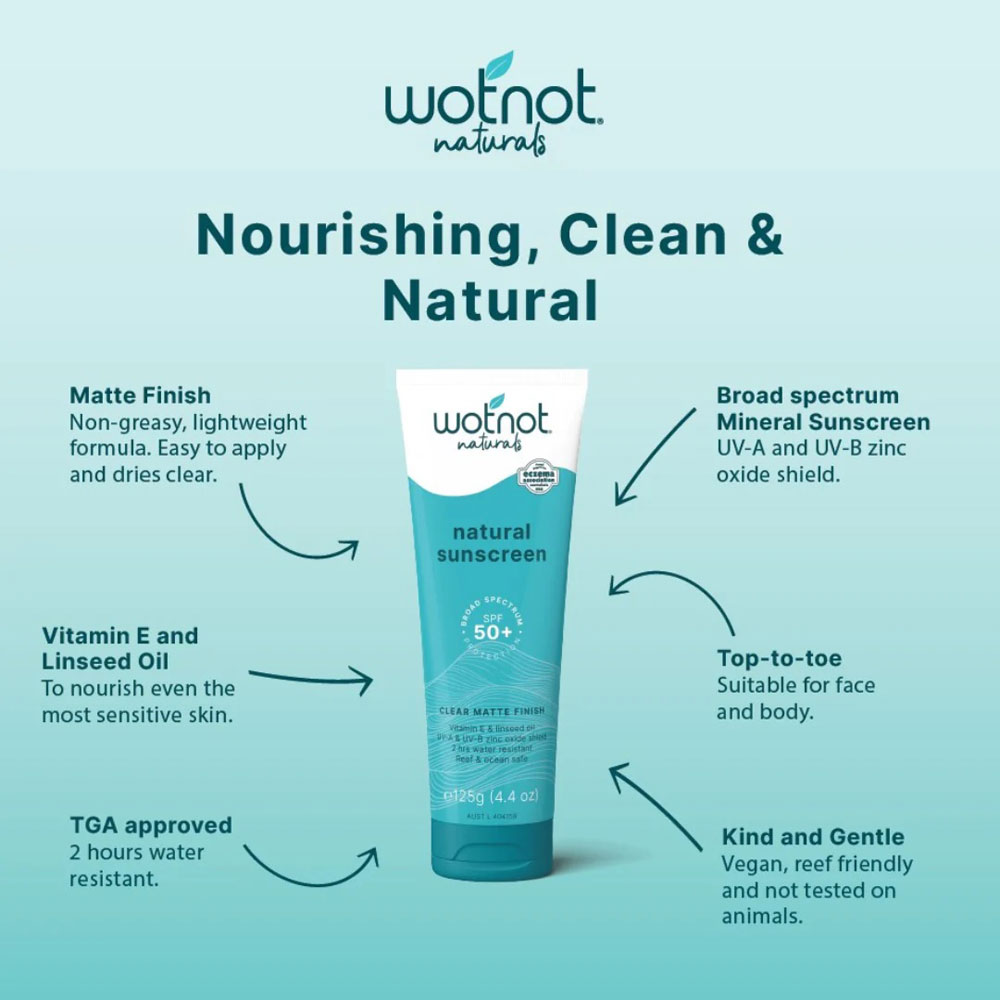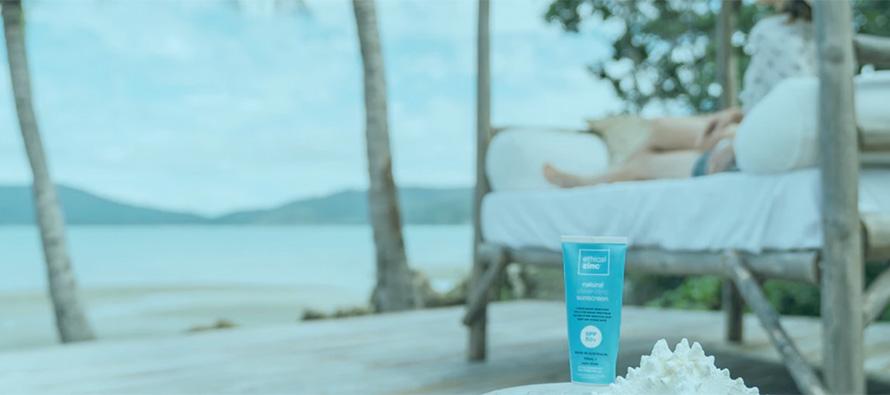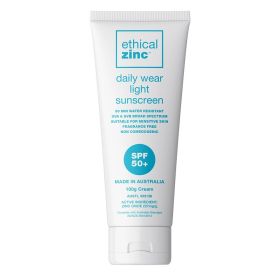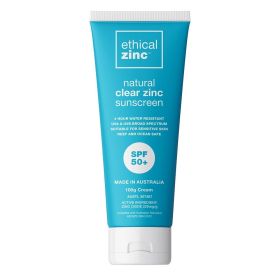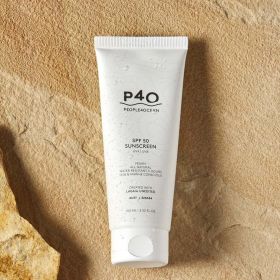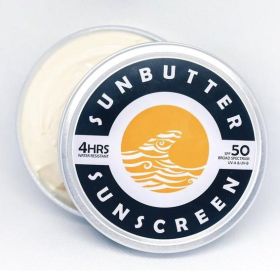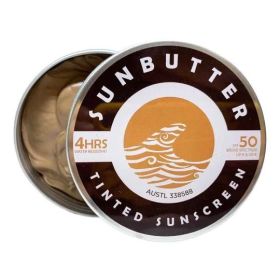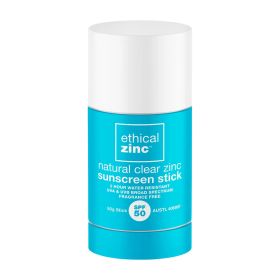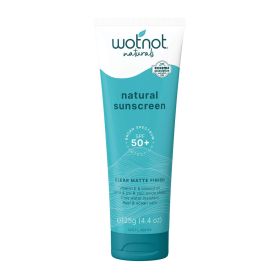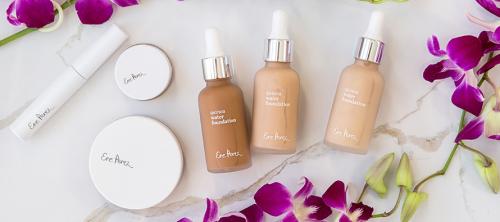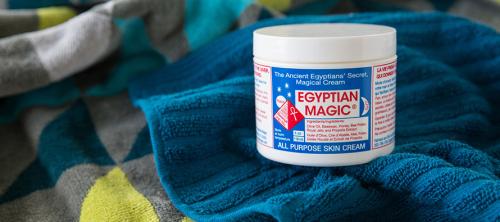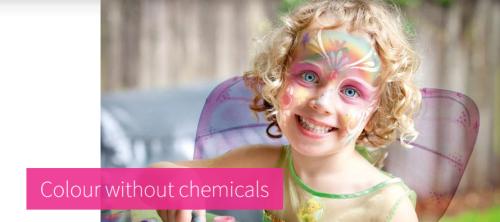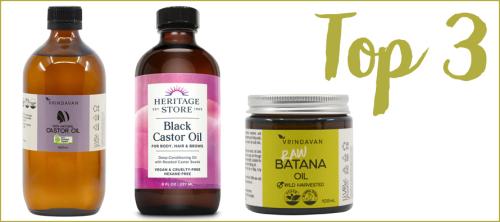Should I swap to an SPF50 natural sunscreen?
Summer 2019/2020 was the first summer that we had SPF50 natural sunscreen options available. Fast forward to 2023/2024 and we have even more choices. If you have settled on a favourite SPF30, is it really time to start making a switch?
SPF30 vs SPF50 is a big number jump. It gives the impression that the SPF50 sunscreen is almost twice as good as the SPF30, but this is not the case. After reading articles on the topic from multiple cancer society official websites, it's not the case and not that clear. We hope this article helps you decide which SPF factor is right for you, especially if you have sensitivities and you've just fallen in love with an SPF30 that you don't want to swap out.
What is SPF?
It's the number that tells you how long the suns UV rays will take to redden your skin vs no protection. So if you use the product exactly as directed, your skin should take 30 times longer to burn with SPF30 and 50 times longer with SPF50.
In real life, this SPF50 can lead to a false sense of security, lapses in reapplication and then ending up with more UV damage. Place someone nearer the equator, up a mountain, skiing, hiking and everything changes.
How much does SPF30 filter out vs SPF50 natural sunscreen?
An SPF50 sunscreen will filter out around 98% of the UVB radiation. SPF30 does 96.7% (according to the Australian Cancer Council). Other sites quote 97%. Most official cancer sites mention that there's a risk of the higher number giving a false sense of security and that lab tests don't always translate to the real world because of how they're used.
How should you apply SPF50 natural sunscreen?
SPF50 need to be applied liberally, just as an SPF30 does. With a natural sunscreen, while know everyone wants that invisible look with it rubbing all the way in, if you're at the beach all day, you are best to apply liberally and live with the ghost look for proper protection. You need to apply 20 minutes before sun exposure and reapply every 2 hours whether it's water resistant or not.
The water resistant trap in SPF30 and SPF50 natural sunscreen
A product listed as water resistant for 4 hours still needs to be reapplied every 2 hours for continued protection. The water resistant marker shows how long it should stay on your skin for without being wiped off. It has zero to do with the level of protection and for this reason, any notion of a number over 2 hours is pointless and gives a false sense of security that it does not need to be reapplied. It absolutely does.
Mineral sunscreen vs chemical sunscreen
Mineral sunscreens use zinc oxide (sometimes titanium dioxide, but that's rare now) to create a physical barrier to reflect the sun. Chemical sunscreens absorb the suns rays. There are also many chemical sunscreens that not only irritate the skin of young children to adults alike, but they're not reef friendly either. All mineral sunscreens are reef friendly. While the chemical sunscreen seems to have cottoned on to the "Free from Oxybenzone" like the water bottle industry did the "BPA Free" signs a decade ago, oxybenzone isn't the only chemical causing issues. There are improvements though in the chemical sunscreen market, so for those who can't use natural sunscreen, choose wisely in the chemical sunscreen department.
What SPF50 natural sunscreen options are available?
The first one in store was Ethical Zinc which is 4 hour water resistant (please reapply every 2 hours though as per the details above). At 22% zinc oxide for protection, those with dry skin will want to give any SPF50 a test drive to see how their skin feels.
Joining it is Sunbutter, the worlds first palm oil free and plastic free TGA approved sunscreen. People4Ocean has one SPF30 and one SPF50 in their range and just this week Wotnot have released a new SPF50 sunscreen to go along with their original SPF30.
So, should you swap to an SPF50 natural sunscreen?
If you have a favourite SPF30 and you don't react to it, we think you should stick with it. If you do want to use an SPF50, you are offered a little added protection but please remember that it's not a license to stay out in the sun all day. Reapply every 2 hours, liberally, and you will have around 98% of our UVB radiation filtered. You can still get sunburn being out all day with sunscreen on.
